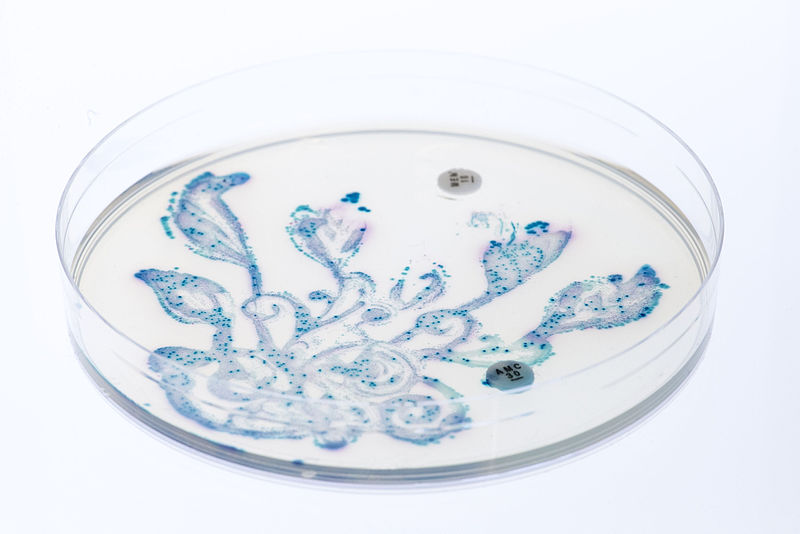Alleviating Parkinson’s Motor Symptoms through Mindfulness
Affecting 10 million people worldwide, Parkinson’s Disease (PD) is one of the most common neurodegenerative disorders which usually affects older populations. Specifically, PD targets the substantia nigra, a region of the midbrain associated with reward and movement. PD depletes the midbrain of its dopaminergic neurons which produce dopamine, a neurotransmitter responsible for the brain’s reward system and motivation, as well as the regulation of body movements. Symptoms of Parkinson’s range from motor symptoms such as tremors and bradykinesia (slowness of movement), to non-motor symptoms such as anxiety, depression, and higher stress levels. Increased stress levels, especially for prolonged periods of time, can disrupt homeostasis, worsening PD motor-symptoms.
During the COVID-19 pandemic, a study from the Radboud University of Nijmegen reported that the increased levels of stress, as a result of the pandemic, increased the severity of both non-motor symptoms and motor symptoms. Not only does exposure to stress increase the severity of PD symptoms, but also another study by the University of Cincinnati in 2013 revealed that it can also cause the neurodegenerative disorder to develop faster.
Considering the impact of stress on patients diagnosed with PD, another follow up study also from the Radboud University of Nijimegen analyzed the effect of mindfulness-based interventions (MBI) on non-motor and motor symptoms commonly associated with the disease. MBIs are a therapeutic approach to alleviating stress and anxiety by incorporating mindfulness, the concept of awareness in the present moment without judgement. In order to analyze the effect of MBIs on PD symptoms, this study surveyed 5000 patients diagnosed with PD and a control group of 1292 individuals unaffected by PD. The survey itself monitored non-motor symptoms, such as depressive symptoms, self-compassion levels, and perceived stress, as well as motor-symptoms, such as rumination, slowness of movement, and tremors. Of the 5000 with Parkinson’s surveyed, the average stress levels reported were significantly higher than individuals who weren’t diagnosed with PD. Higher levels of stress also had stronger effects on the severity of their tremors.
During the COVID-19 pandemic, a study from the Radboud University of Nijmegen reported that the increased levels of stress, as a result of the pandemic, increased the severity of both non-motor symptoms and motor symptoms. Not only does exposure to stress increase the severity of PD symptoms, but also another study by the University of Cincinnati in 2013 revealed that it can also cause the neurodegenerative disorder to develop faster.
Considering the impact of stress on patients diagnosed with PD, another follow up study also from the Radboud University of Nijimegen analyzed the effect of mindfulness-based interventions (MBI) on non-motor and motor symptoms commonly associated with the disease. MBIs are a therapeutic approach to alleviating stress and anxiety by incorporating mindfulness, the concept of awareness in the present moment without judgement. In order to analyze the effect of MBIs on PD symptoms, this study surveyed 5000 patients diagnosed with PD and a control group of 1292 individuals unaffected by PD. The survey itself monitored non-motor symptoms, such as depressive symptoms, self-compassion levels, and perceived stress, as well as motor-symptoms, such as rumination, slowness of movement, and tremors. Of the 5000 with Parkinson’s surveyed, the average stress levels reported were significantly higher than individuals who weren’t diagnosed with PD. Higher levels of stress also had stronger effects on the severity of their tremors.
Image Source: Ketut Subiyanto
However, 38.7% of the PD patients also reported practicing some form of mindfulness meditation on a daily and weekly basis. Of this specific group of individuals who practiced meditation, their perceived stress levels were relatively lower in comparison to those who didn’t. In addition to lower stress levels, those who practiced MBIs also showed improvement in motor symptoms and coordination. Those who practiced mindfulness on a more consistent basis performed better in clinical performances, such as being able to control their muscles during movements. The study also divided mindfulness-participants by how many times they practiced mindfulness in a given time. Those who practiced meditation more often, such as multiple times in one day, reported improvements in bradykinesia and tremor symptoms.
Although some aspects of this particular follow-up study have been promising, there are a couple of limitations to be addressed. One of these limitations consists of the accuracy of the survey itself and how different people interpreted the questions presented in the survey. This could have potentially affected the results, as the different interpretations of stress could have factored into the average levels reported, and therefore the conclusions drawn. However, for the most part, because PD symptoms are expressed as motor impairments, this study has shown the healing powers of MBIs for common motor PD symptoms. In order to distinguish the extent to which MBIs can affect the motor PD symptoms, further research can not only focus on the implementations of them, but also on the types of MBIs and if there’s any difference between their respective impacts. As more non-traditional approaches, such as MBI’s, begin to become more incorporated into clinical settings and treated as formally as other treatments, PD patients are more likely to receive a more effective combination of different treatments.
Although some aspects of this particular follow-up study have been promising, there are a couple of limitations to be addressed. One of these limitations consists of the accuracy of the survey itself and how different people interpreted the questions presented in the survey. This could have potentially affected the results, as the different interpretations of stress could have factored into the average levels reported, and therefore the conclusions drawn. However, for the most part, because PD symptoms are expressed as motor impairments, this study has shown the healing powers of MBIs for common motor PD symptoms. In order to distinguish the extent to which MBIs can affect the motor PD symptoms, further research can not only focus on the implementations of them, but also on the types of MBIs and if there’s any difference between their respective impacts. As more non-traditional approaches, such as MBI’s, begin to become more incorporated into clinical settings and treated as formally as other treatments, PD patients are more likely to receive a more effective combination of different treatments.
Featured Image Source: Pixabay
RELATED ARTICLES
|
Vertical Divider
|
Vertical Divider
|
Vertical Divider
|






